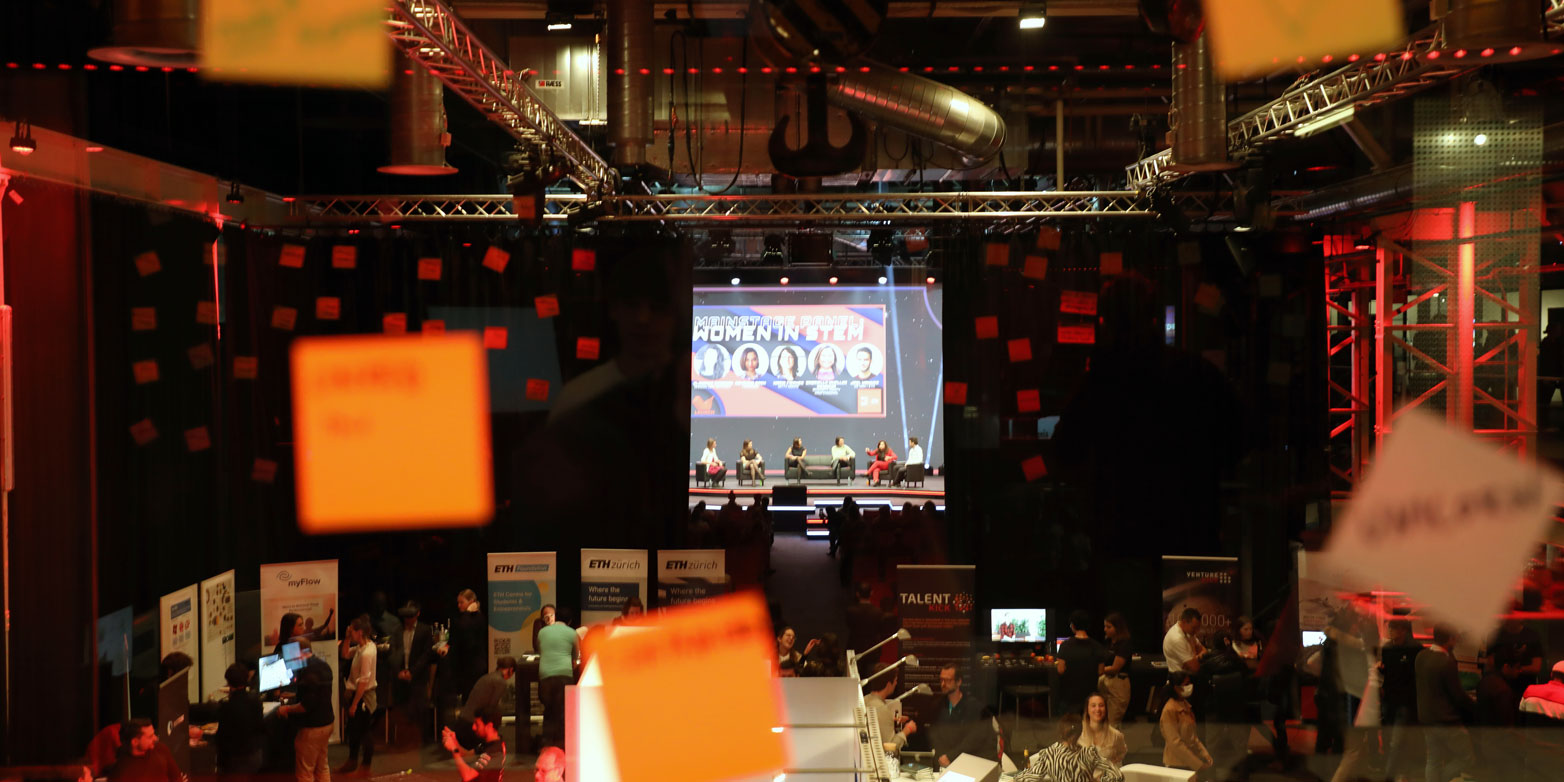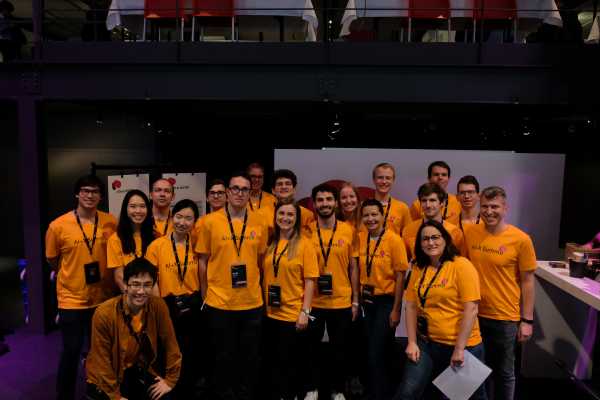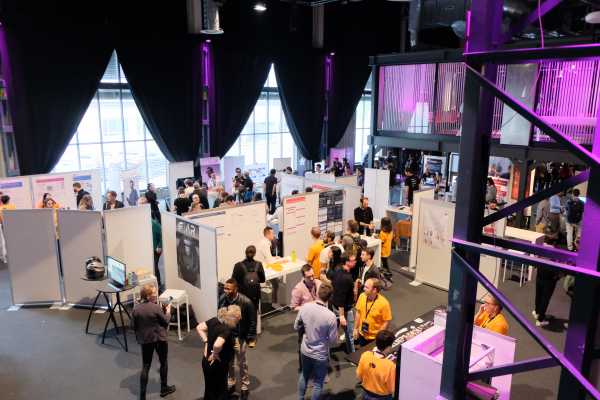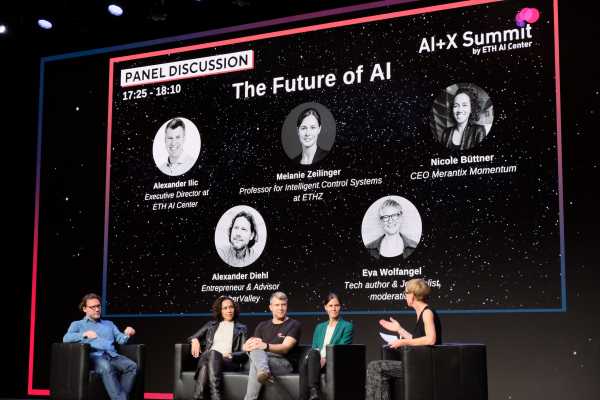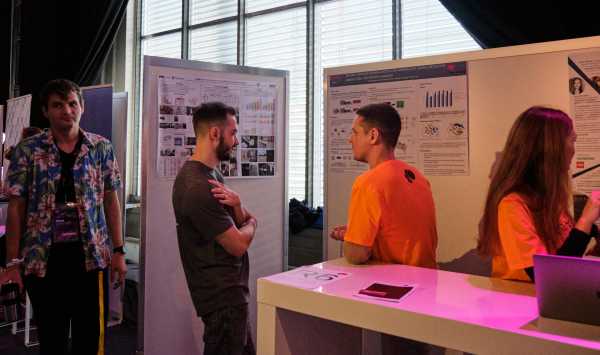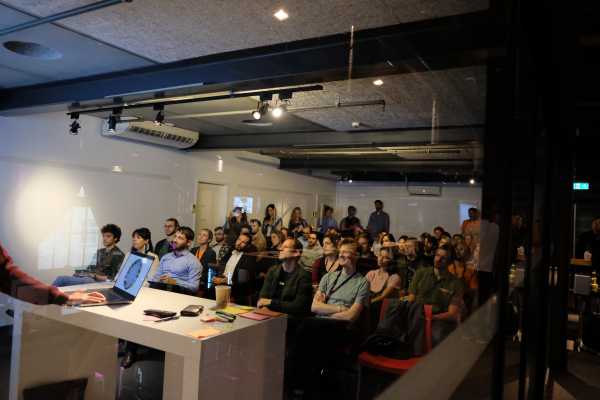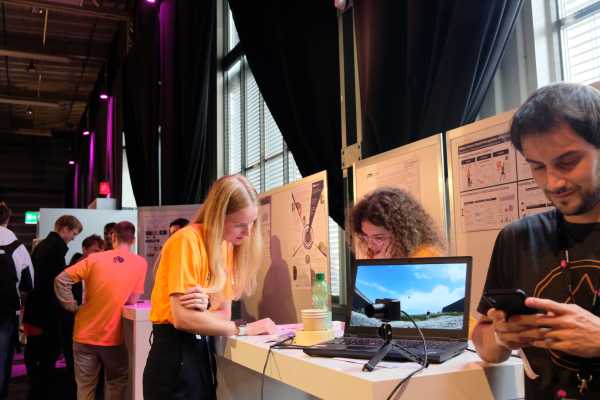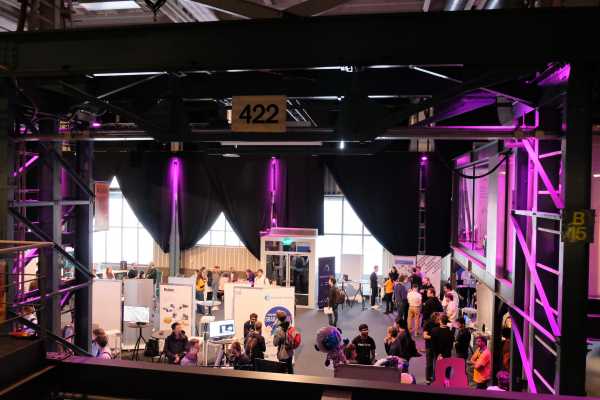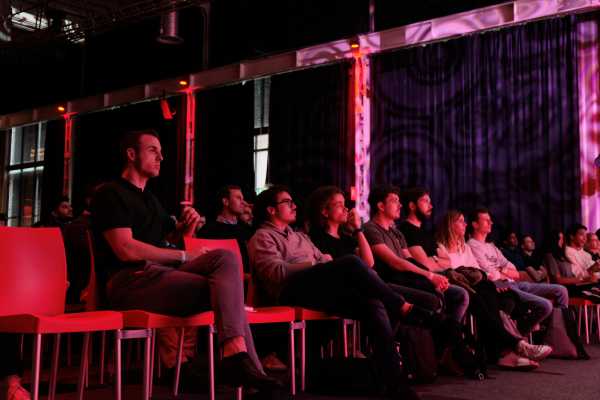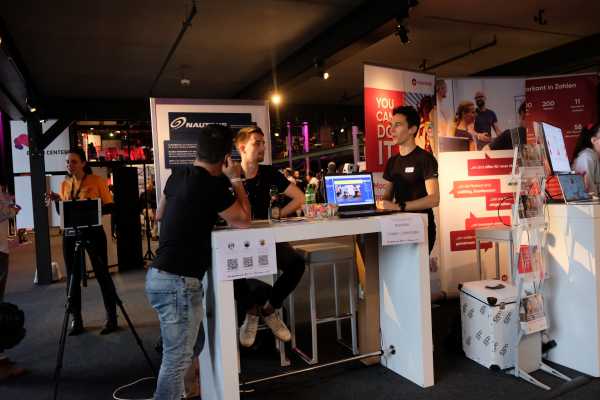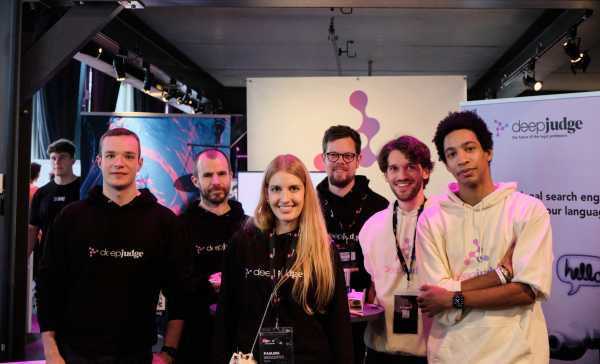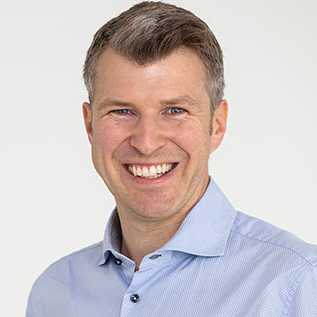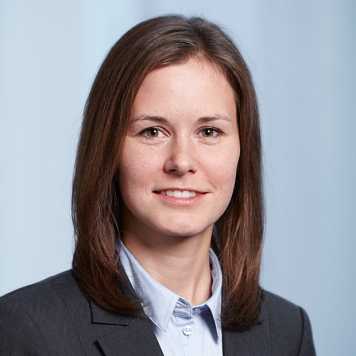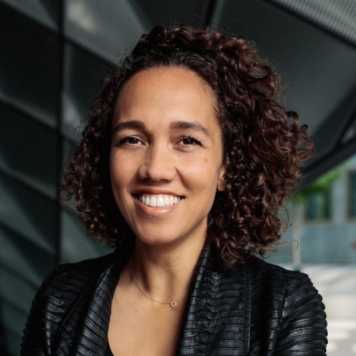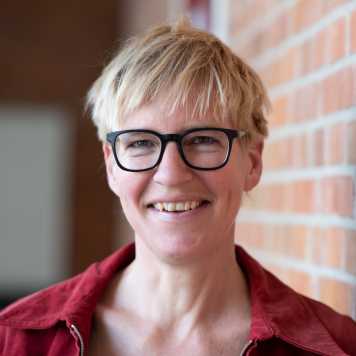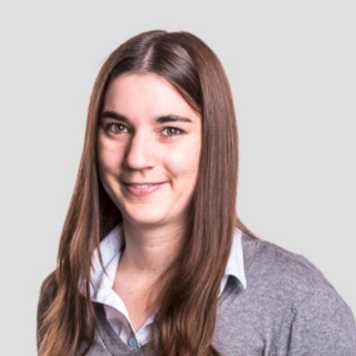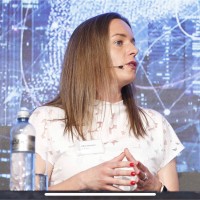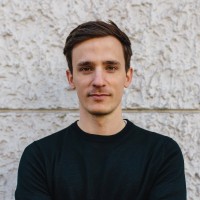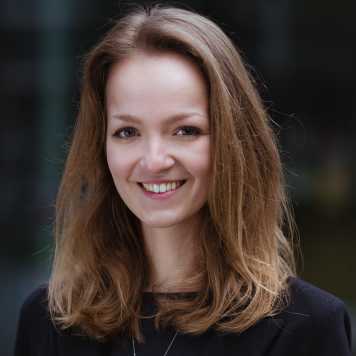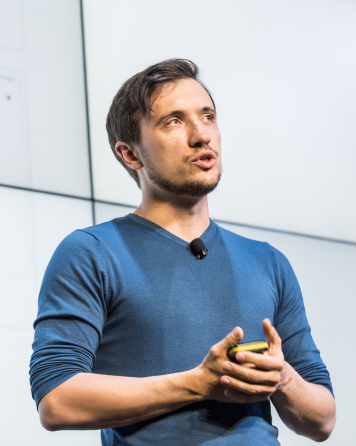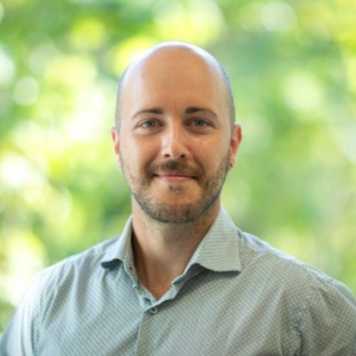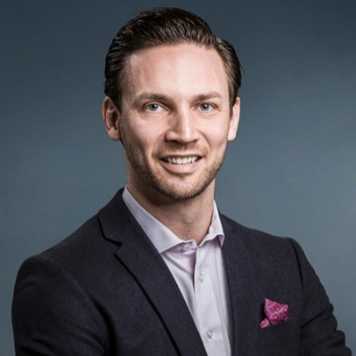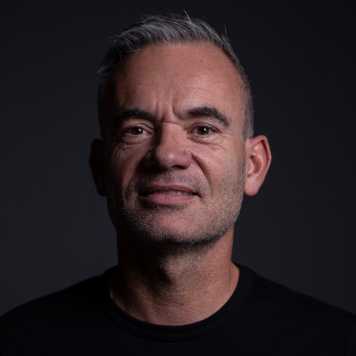AI+X Summit 2022
At our annual flagship event, over 2000 researchers, students, entrepreneurs, and industry leaders came together to discuss emerging trends and business models in artificial intelligence.
About AI+X Summit
AI+X Summit is the annual flagship event of ETH AI Center. It brings together researchers and students in ML/AI, startups and industry experts, founders and the wider AI community to facilitate exchange, spark collaboration across disciplines and advance technology transfer between academia and the business world.
- GET INSPIRED from our line-up of industry leaders, entrepreneurs and pioneers speaking at the main stage and in 16 workshops stretching from tech investing to AI fro humanitarian aid and sustainability
- DISCOVER ground-breaking innovation from AI start-ups and the latest research highlights from our faculty and fellows
- MEET our corporate and ecosystem partners in a single spot
- IDEATE about AI's future in our workshops - and find out what your role in it might be!
The Program
On Mainstage
Intelligence Augmentation
Speaker: external page Menna El-Assady, post-doctoral research fellow at ETH AI Center n the field of data analysis and visualization
Building a global AI-first company out of Switzerland
Speaker: external page Yannic Kilcher, Co-Founder & CTO DeepJudge
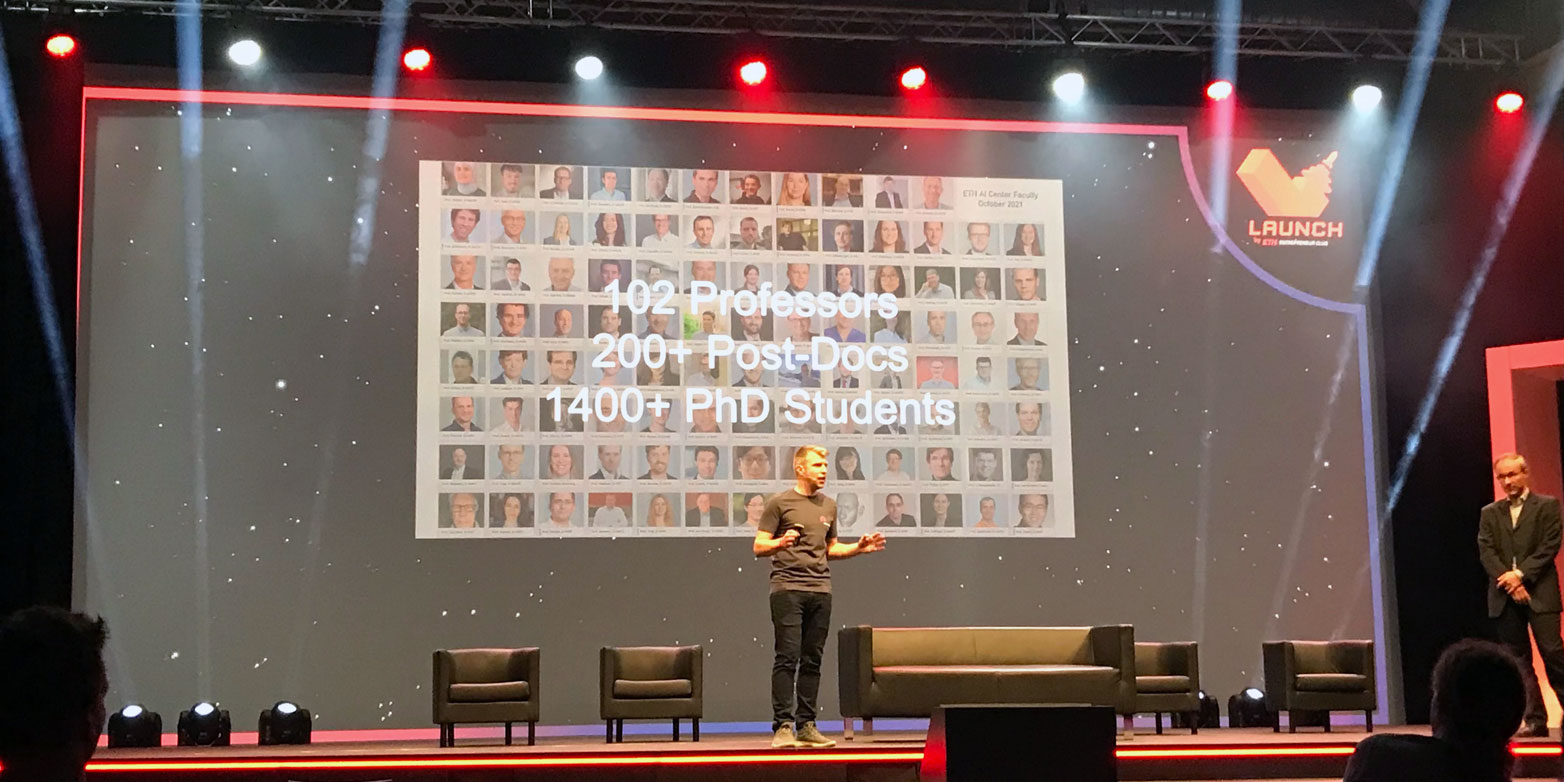
Workshops
10:30 to 12:00
This workshop will present three research initiatives at ETH Zurich which explore the use of AI as a tool for humanitarian assistance and peacekeeping. Two of the three research initiatives work with open-source satellite data. Specifically, they ask how satellite imagery can be used to (1) map vulnerable populations and (2) assess war-related damage to infrastructure at unprecedented scales. A third research initiative works with event data from conflict zones in Sub-Saharan Africa – and asks how AI can leverage this data to (3) improve risk assessments in UN peace missions.
In pursuing these questions, all three research initiatives depend on a close cooperation between scholars at ETH Zurich and humanitarian practitioners 'in the field'. Bridging this gap involves challenges of inter-disciplinary thinking and science communication upon which the workshop will reflect as well.
Host: Sascha-Sebastian Langenbach, Center for Security Studies (CSS) at ETH Zürich and Helga Rietz, Science Communications Manager at ETH AI Center
Speakers:

Dr. Sascha-Sebastian Langenbach, Center for Security Studies (CSS) at ETH Zürich

Olivier Dietrich, EcoVisionLab at ETH Zürich
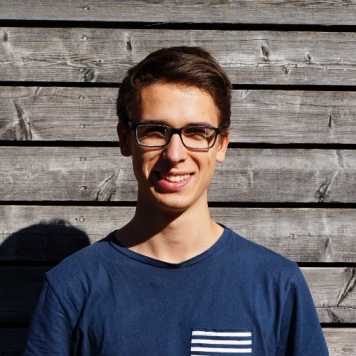
Nando Metzger, Photogrammetry and Remote Sensing Lab at ETH Zürich
At the junction where the digital, the physical, communication and people cross, is where Industry 4.0 comes forth:
The automation that has long since become norm is being revolutionized, one could almost say, by automating automation – physical systems in logistics and production communicate with other systems whilst gathering data that is communicated to the relevant worker or consumer. AI would act as the ‘traffic light’ in this scenario, guiding data to the right places and turning that data into useful action-items. With Industry 4.0 affecting both small and medium-sized manufacturing enterprises by pushing them towards fast digital transformation, AI is the key competitive tool to survive and thrive in competitive markets. Applications would include using predictive maintenance to enable less machine and production line downtime, as well as overall lower operating costs through, e.g. autonomous product transport vehicles that get notified automatically by smart production lines. Data collection and data analytics enables promising solutions for industry, such as workers getting real-time information via AR. However, it is usually not clear whether they enable sufficient value creation for the customers and value capture for the providers. Therefore, a smart service-oriented approach helps finding a way towards viable solutions.
Let’s unlock new ways for data-based value creation in manufacturing by joining forces; in the AI+X Summit 2022 workshop, we will collect input on the challenges in the manufacturing sector, enriching a deeper understanding of the problem-and-solution space and thereby deliberating possible approaches with practitioners and researchers.
Hosts: Dr. Melanie Geiger and Dr. Gundula Heinatz, external page data innovation alliance
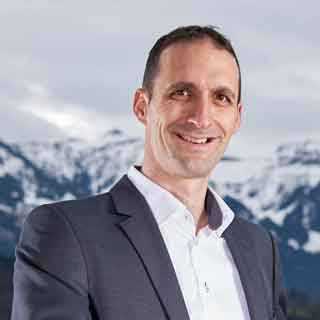
Philipp Schmid, Head Research and Business Development Industry 4.0 & Machine Learning at CSEM
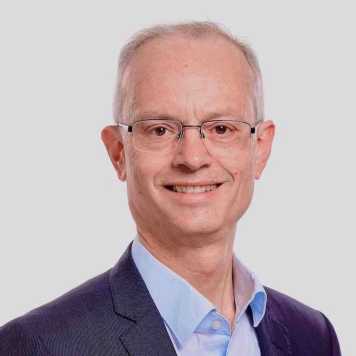
Dr. Jürg Meierhofer, ZHAW, Moderation
In traditional corporations, AI projects frequently fail to deploy their machine learning models in production. Even when they do, the results may not be what was anticipated or may not produce the desired value.
The usual questions, "What are use cases with this model?" demonstrates how frequently we experiment with novel types of models in academics without yet knowing what the potential application is. The ideation phase is the focus of this workshop and is a critical phase in each project to ensure the focus of the project is geared towards generating value. We will look at examples of failures that resulted from the ideation phase not being carried out diligently. This is followed by examining a framework that will help us define the various elements of a use case from the prediction and value perspectives, enabling alignment with and translation between both the business and data science sides of an AI use case.
Host: Afke Schouten, Director of Studies in AI Management and AI Operations at external page Hochschule für Wirtschaft Zürich (HWZ) and Founder external page AI Bridge
This workshop will explore current privacy enhancing techniques such as homomorphic encryption and the use of synthetic data when dealing with highly sensitive datasets. With the participation of speakers from ETH Zurich, Syntheticus and HPE, the panel integrates perspectives from academia, startups and big companies alike.
Host: Andrej Kulikov, Partnership Manager at ETH AI Center
Speakers:

Aldo Lamberti, Founder at Syntheticus
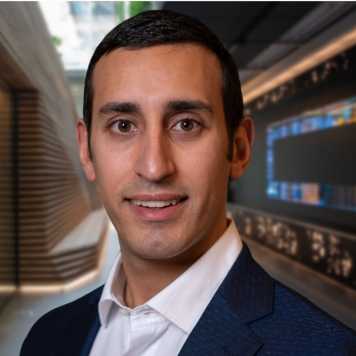
Raffaele Tarantino, AI Architect, HPE
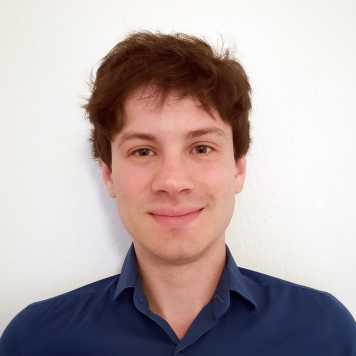
Daniel Paleka, ETH Zürich
13:00 to 14:30
The ARC is a benchmark for general intelligence, that requires strongest abstraction capabilities and is independent from culture or particular entities. It is designed to be a test that can be solved by humans but not brute force computing or deep learning. In this workshop, we will introduce the problem and brainstorm ideas and possible approaches that might lead to solving the challenge.
Host:
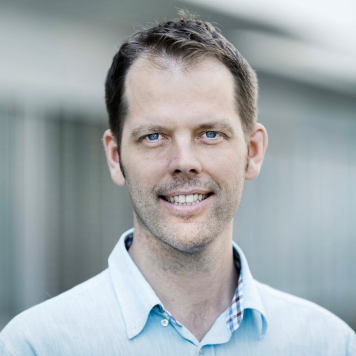
Prof. Benjamin Grewe, ETH Zürich
Speakers:
Prof. Benjamin Grewe, ETH Zürich
Pascal Kaufmann, Lab42
Adrian Hoffmann, Lab42
With the latest generation of text-to-image models like DALL-E 2 and Stable Diffusion, AI-generated imagery has exploded onto Instagram and captured the attention of the wider public. Can machines already autonomously create real art? If they can't, what else would it take?
We will take a dive deep into the field of computational art along examples from the KI-Salon Heilbronn by the artists bleeptrack and Lunar Ring, and explore how AI will shape human imagination and challenge creativity.
Host: Adrian Notz, Curator AI+Art at ETH AI Center
Speakers:
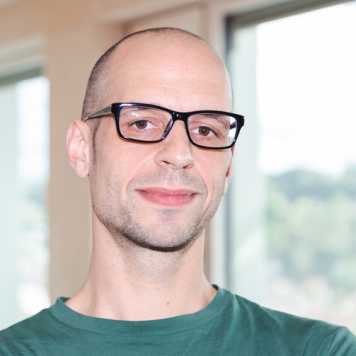
Dr. Niklas Fricke, Co-Founder of the AI startup Colugo (www.colugo.ai) and the artist group Lunar Ring (lunar-ring.ai)
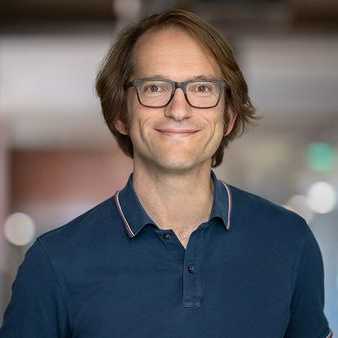
Thomas Bornheim, CEO of 42 Heilbronn
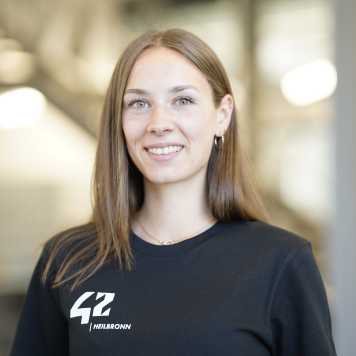
Lea Krück, project manager for KI Salon at 42 Heilbronn

bleeptrack, artist in residence at KI Salon Heilbronn & PhD candidate in ML and Computational Creativity at University of Ulm
The vulnerability of planet earth is the defining problem of our time. Its urgency and the increasing availability of data also make it a perfect application for modern AI methods. We peek into how ML and AI can help solve pressing issues in climate change, biodiversity monitoring and the sustainable production of food and energy.
Host: Dr. Matteo Turchetta, ETH Zürich and Benjamin Moseley, ETH AI Center
Speakers:

David Dao, ETH Zurich and Co-Founder GainForest

Christoph Gössmann, ETH Zurich (SDG monitor)
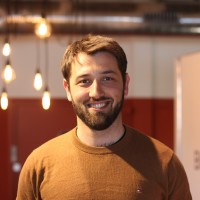
Panagiotis Martakis, Co-Founder at Seismohealth
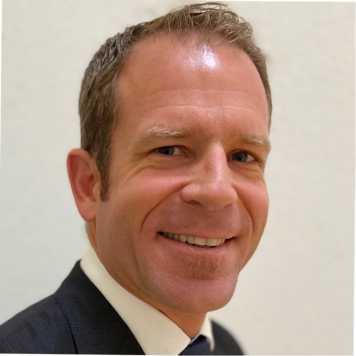
Thomas Brunschwiler, IBM Research Europe
15:00 to 16:30
Can NLP alleviate social problems?
That is the central question for researchers in the (rather new) field of NLP for social good. Their aim is to harness NLP tech to stop hate speech and misinformation, but also to improve teaching or the access to medical services.
Host: Zhijing Jin, MPI & ETH Zürich and Helga Rietz, Science Communications Manager at ETH AI Center
Speakers:

Zhijing Jin, MPI & ETH Zürich

Alessandra Stampi-Bombelli, ETH Zürich
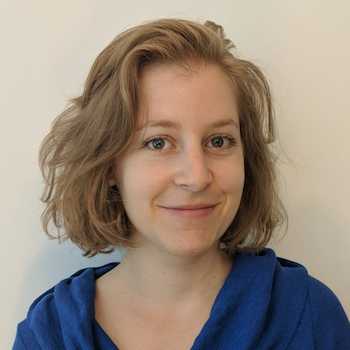
Laura Bronner, stophatespeech.ch, ETH Zürich
We believe that AI should be available and accessible to everyone. The ACE workshop is built around the idea that the best way to learn something new is by getting hands-on experience no matter how hard you think it may be. We will walk you through the steps of building a deep learning model from scratch that annotates your messages with emojis using the latest developments in research of NLP and AI. You will not only acquire the skills to solve many different NLP problems but you will also gain an insightful first glance at the world of AI. The seminar is open to all audiences. We hope that you will find it to be a productive and enjoyable learning experience.
Can Artificial Intelligence (AI) join us in designing and building more sustainable and inclusive buildings and cities? Will AI be a partner to architects, engineers and inhabitants alike in creating the living and working spaces of the future? How can virtual and augmented realities facilitate human and AI interaction and co-creation?
In this workshop we will imagine possible futures, near and far, for the Architecture, Engineering and Construction industry enabled by AI and Extended Reality (XR). A presentation of the latest research into AI for Design at ETH Zurich and a short story describing a possible future for Architecture will trigger workshop participants for the discussion.
Participants are asked to read external page this text before the workshop (18min reading time).
Hosts: Dr. Danielle Griego and Dr. Michael Kraus, Design++
Speakers:
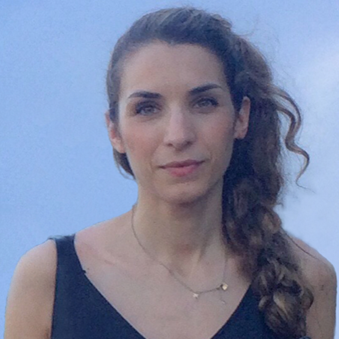
Dr. Iro Armeni, Chair of Innovative and Industrial Construction at ETH Zurich
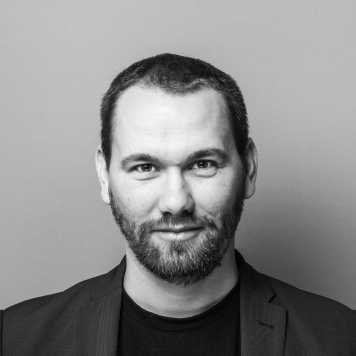
Dr. Anton Savov, Chair of Innovative and Industrial Construction at ETH Zurich

Dr. Michael Kraus, Co-Coordinator of the Immersive Design Lab at ETH Zurich
Instead of looking at "Venture Capital for AI", this session is looking at "AI for Venture Capital". What are the current and anticipated use cases and how would this impact the decision-making & processes in the venture capital industry.
Isabelle Siegrist, VC @Sandborn and Research @ETH, will host and introduce two guest with their practical experience: Tiziano Suran, Lead Data Scientist at Equation Cap, a Fund of Fund, shares his view and learnings, as well as Marco Stutz, VC at Redstone. The panel will be followed with an interactive discussion on break-out groups with practitioners, researchers and students.
18:30 to 20:00
"At its core, much of health care is pattern recognition", Forbes wrote in 2020. Indeed, many AI startups aim to tackle specific problems in healthcare - from mental health to pain management to automated note-taking for doctors and nurses. In this workshop, we discuss opportunities and hurdles encountered by founders in Health AI.
Host: Jennifer Wadsworth, PhD, Partnership Manager at ETH AI Center
Dr. Dietmar Schaffarczyk, Regulatory Expert at ETH's Digital Trial Intervention Platform (dTIP)
Self-driving vehicles, robotized surgical procedures, assistive systems that enable people with disabilities to have more self-determination, … – technology-based opportunities which the term “AI” tries to capture represent an increasing presence of AI in human existence. Both the professional everyday life and the private life of people are characterized in the present by a growing interaction with AI. The aim of this workshop is to discuss and identify opportunities and risks of AI from an ethical perspective.
Host: Adrian Notz, Curator AI+Art at ETH AI Center
Speaker:
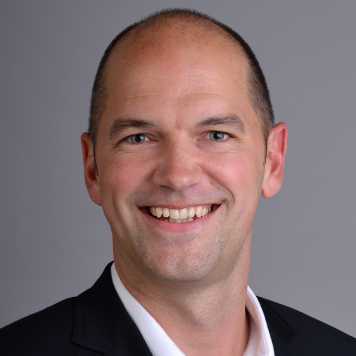
Prof. Peter Kirchschläger, University of Lucerne
In this workshop, we will look at how to combine state-of-the-art ideas in natural language processing with concrete legaltech applications. After an introduction, academic inputs will give us an overview of the current state of the art and developments in the area of natural language processing. We then provide an introduction to a legaltech application called Herlock. Herlock organizes information in the legal universe space, extracting relevant information from documents by combining NLP and heuristics. In a final step, we break out into groups and go about translating the latest NLP techniques into real-world features.
Host: Mirella Haldimann, D-ONE
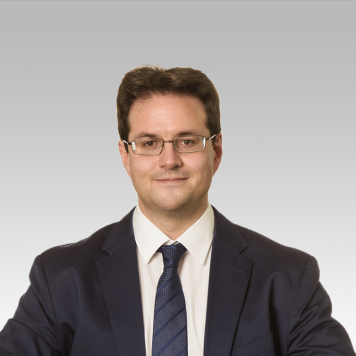
Dr. Philipp Thomann, Managing Consultant D ONE Solutions AG
Partners
Corporate Partners

Affiliated Startups

Ecosystem Partners

The Venue
This year's AI+X Summit will take place on Friday, October 14th, from 10 am to 10 pm, at external page Stage One, a vibrant event and convention hall in Zurich Oerlikon.
It is colocated with external page Launch, the external page ETH entrepreneur club's annual flagship event and external page InCube, an entrepreneurship and design thinking challenge organized by the ETH Entrepreneur Club.

Savvy for more about AI and it's societal implications?
Join the AI Policy Summit 2022
Technological developments in artificial intelligence (AI) are transforming both society and the theory and practice of government intervention. That is why the external page AI policy summit brings together leading experts from politics, academia, business, civil society, and IGOS to explore the role of policy in minimizing the risks of artificial intelligence and promoting its adoption.
This year's edition, organized by the ETH Zurich Center for Law & Economics and external page RegHorizon, will take place from October 10th through 13th in a mix of online and hybrid sessions.
In addition to the latest developments in the EU and the U.S., special attention will be paid to AI policy in India, Singapore, and Africa.
Register for free at: external page https://reghorizon.com/ai-policy-summit-2022/
